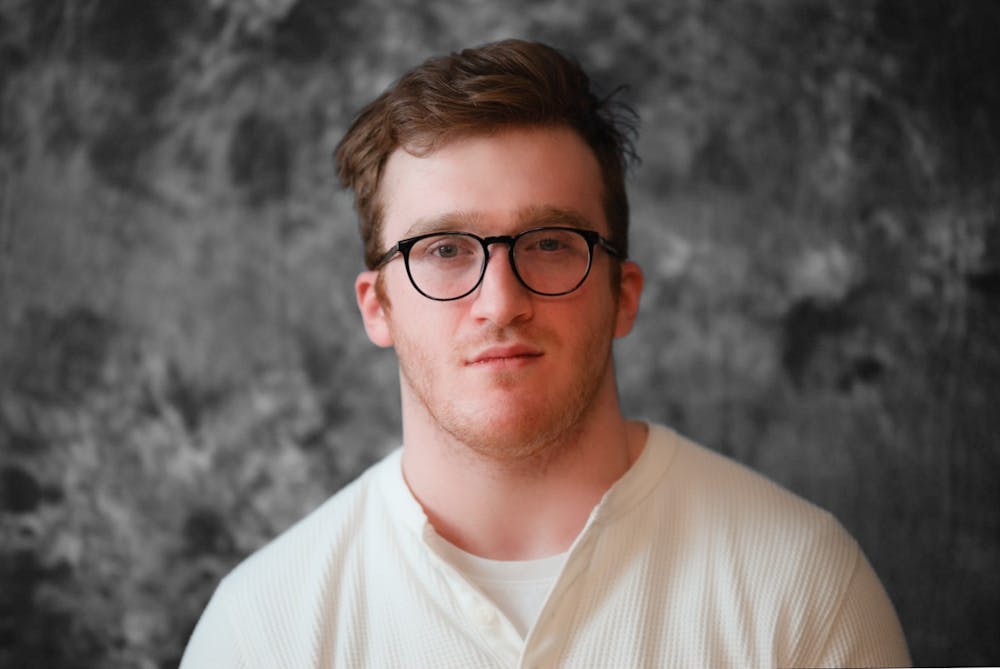When I first realized I was bisexual, I wasn’t upset with myself; I was happy to finally understand myself a little better.
But, I was terrified to tell my friends.
For a little over a week, I paced around my room, sometimes in tears, as I imagined how my friends would react. I knew I had to tell them, but the thought of losing people I considered family because of my newfound sexuality broke my heart.
When I finally did tell them, I was shocked by their response. My friends made me feel loved in a way I’d never felt before. I realized my sexuality had zero bearing on any of my friendships.
This was even the case with the friends I had recalled making homophobic comments in the past. They were so sad that I felt scared to tell them about my sexuality, and made sure to tell me that those moments were from a different part of their lives or were simply jokes. Who I am, they said, would never change our friendships.
After a few weeks, I realized that the weight of the world had been lifted off my shoulders. And, more importantly, I began to question why I ever felt that weight in the first place.
Today, I think about the people I know who have been in the same position as me, and I get livid.
Why do we live in a society where people have to announce that they aren’t straight, what gender they identify as or any other characteristic which defies the norm?
Don’t get me wrong: I understand that belonging to the LGBTQ community is not as common as being straight (at least publicly).
But I don’t think it should matter.
People on social media — or the news, in the case of celebrities — constantly seem to make such a celebration out of their newfound sexualities and/or identities, but that’s far from what people want.
Obviously, I don’t want to be discriminated against. But I equally don’t want my friends to act differently toward me or be “overly accepting” because of my sexuality.
Now, I didn’t have this problem myself. I only told people I’m actually friends with or hang out with regularly about my sexuality. But I’ve seen enough essay-length Instagram posts to know that some people feel the need to let everyone else know.
And I’m not saying they don’t have to do that. If you want to scream who you are to the world, do it with your head held high.
But don’t ever feel like you have to.
Not because there’s something wrong with saying it, but because it shouldn’t change anything.
None of my friends reacted badly, but my favorite reactions were the ones that barely registered.
Some people were caught off guard, others welcomed the news with open arms.
Both reactions were understandable, but neither gave me the most comfort.
I wanted nothing to change.
My roommates are all very accepting people, never judging anyone for their identities. And while they didn’t even question accepting me, the best part was that it literally made zero difference to them.
To them, I wasn’t any different than I was the day before.
And that’s not to say your friends don’t love you if they do have a reaction that didn’t meet your expectations.
We are all different, and as human beings, it is completely understandable if some individuals are surprised, or even slightly uncomfortable, when talking about something they are not used to discussing.
They will eventually get used to it. Don’t internalize those reactions too harshly; nobody is perfect, and if anyone says they are completely comfortable discussing a topic that is so foreign to them, they are lying.
But that is OK, too. If they really are your friends, they will never stop loving you, and they will force themselves to get used to it because that’s how much you mean to them.
Even then, I encourage you to talk openly about it and not get too quiet when your friends ask questions. Having a casual dialogue about any part of it will only help to normalize what is seen as so different by many. You will feel closer with your friends than ever before as a result.
But at the end of the day, you are your own person. And if you don’t want to explain your sexuality or identity for whatever reason, you don’t owe anyone an explanation.
You don’t owe anyone s—t.
Because to your true friends, it will make no difference in the long run, even if they need some time to get used to it.
Alex Falter is the senior arts editor and can be reached at alex.falter@ubspectrum.com

Alex Falter is a senior arts editor at The Spectrum.





